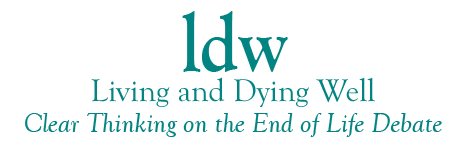A research paper written by Ana Worthington, Ilora Finlay and Claud Regnard has investigated the safety of drugs used in assisted dying throughout the jurisdictions where it has been legalised. They have found that not a drug or combination of drugs has been licensced for use in assisted dying by any licensing body anywhere in the world. Access the 7-page paper here, and see several of their conclusions quoted below:
“Clinicians throughout the world are prescribing and administering a wide variety of lethal drug combinations for patients who request an ‘assisted death’. While assisted suicide and euthanasia is often portrayed as a ‘Hollywood’ style peaceful and painless death, evidence from jurisdictions where the practice is legal reveals that this is not always the case. The prevalence of reported and suspected complications
suggest there stands a risk of subjecting patients to a less than peaceful death and their loved ones to a traumatic bereavement.”
“The prevalence of adverse effects also has implications for clinical practice. The experience of ‘assisted dying’ may not be the ‘safe and comfortable’ process promoted by campaigners, and patients must be properly informed of the realities of hastening death and the risk of distressing complications. In the case of assisted suicide, this includes difficulties ingesting the volume of lethal drugs, adverse reactions to such drugs once ingested, and chances of a prolonged dying which could take several hours. In the case of euthanasia, patients should be informed that cognitive levels can be difficult to monitor and that they will be administered a paralytic agent which will stop them breathing and may inhibit them from alerting anyone if they are in distress. There must also be clear guidelines as to what actions clinicians should
take if an ‘assisted death’ goes wrong or fails. Are doctors prepared to be present if the death takes several hours? If the patient regurgitates the drugs, should the clinician clear the airway and put them in the prone position even though such action makes it less likely the patient will die?”
“As ‘assisted dying’ becomes implemented in Western medicine, the practice must be held to the same standards of any other medical procedure. We could find no reports of systematic monitoring of brain activity until death, blood levels of drugs or postmortem examination of the lungs. As organ harvesting after euthanasia is being practiced in some Benelux countries; we recommend such research be undertaken urgently following assisted suicide and euthanasia.”
